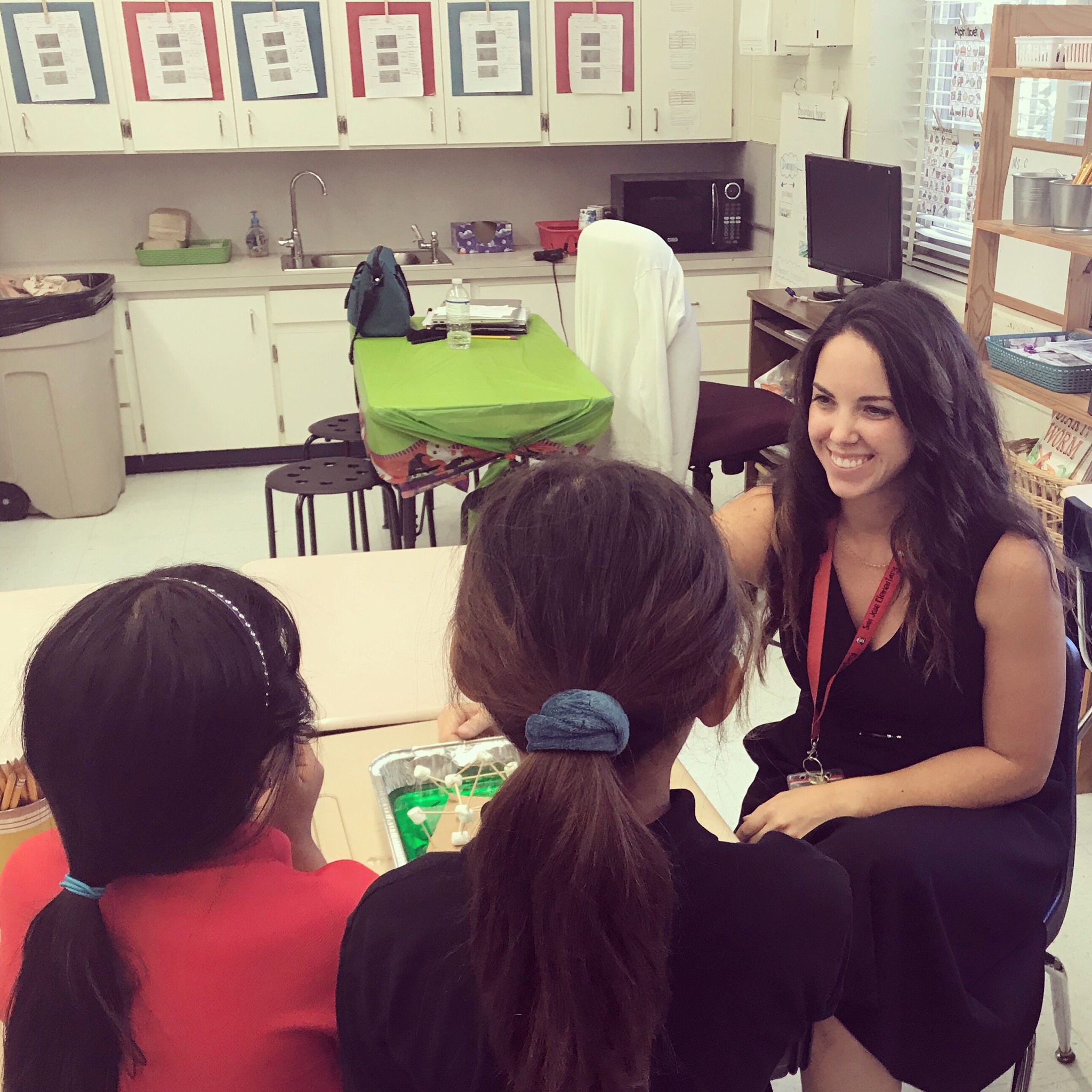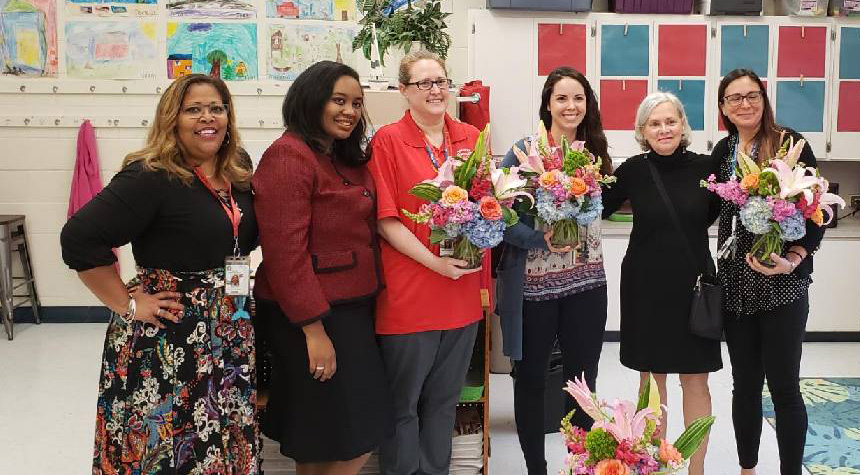Teacher leaders promote education equity through “heart work”
Checking in with Caran Mullins, one of the winners of the Cindy Edelman Excellence in Teaching Fellowship.
7/30/2020

For Caran Mullins, a white teacher who has served children in Title I schools for the last five years, learning about education inequity has been a journey.
“I thought like a lot of people I can’t be racist because I vote a certain way, care about all of my students, and I believe in certain things,” Mullins said. “I thought, like many others, that I was exempt.”
Then, she read a book called Raising Race Questions: Whiteness and Inquiry in Education that profoundly changed Mullins’s perspective on her work as a teacher: statements from teachers who opened up about their shortcomings in regard to racial inequities they created and perpetuated in their own classrooms.
“I read these teacher reflections that were so honest and I realized, ‘Wow, I’m doing this in my classroom.’ I had never had the opportunity to hear teachers saying they were harming Black students unintentionally,” she said. “That text gave me permission to start to acknowledge that and look at that in my own practice.”
As a result of what she learned, Mullins continued to deepen her knowledge around racial equity in her classroom. Equity Audits in the Classroom was the simple, practical manual that provided continuous opportunities for auditing her own classroom to reveal her blind spots.
As Mullins has been educating herself, she has led other teachers along with her. Mullins has been leading a study group at San Jose Elementary, reading and discussing books that challenge educators to ask themselves difficult and important questions: do I truly support all students to achieve? Am I reaching all families, even if they don’t speak English? Am I providing challenging coursework and scaffolding to my ESE students, even when I’m tired and having a bad day? Am I inadvertently disciplining Black boys more harshly than other students?
For Mulllins, the answer has many times not been what she would have expected as she began this work. For the past year, Mullins has taken a deep dive into examining racial practices in her classroom, specifically centered around her own behaviors and thoughts about her Black male students and how it is affecting their outcomes.
New research shows that implicit biases, created through stereotypes and social inequities in our society, affect everyone, including teachers, and these biases can have an effect on students. JPEF and Duval County Public Schools have partnered to offer training on implicit bias to engage educators in learning more and adopting equity-focused practices in the classroom.
In Mullins’s case, the learning has been teacher-led and supported by UNF’s Center for Urban Education and Policy and JPEF’s Teacher Leadership Initiative, which Mullins participated last year as her school’s Teacher of the Year.
In one of the most powerful moments in her work, Mullins and others that participated in the equity professional development shared some of their reflections during a faculty meeting of 50-some teachers at San Jose. The teachers were nervous about the possibility of judgment from other teachers, but at the end of the discussion, they applauded.
“It became a safe place for us to have vulnerable and critical conversations to improving school experiences for all of our students,” Mullins said of her book group, which she described as “heart work” that could only happen when teachers voluntarily participate out of their own concern for students. “This gave us the support we needed to share with our staff what we were working on in hopes of creating a critical lens into equity as a school community.”
In the spring, Mullins’s work was recognized district-wide when she and her team were named inaugural winners of the Cindy Edelman Excellence in Teaching Fellowship. The Fellowship, which launched in 2019, is intended to identify and reward excellence in teaching and support a program of professional development or research. Fellows can receive up to $6,500 per individual or $10,000 per team of teachers for approved expenses.
“Not only did it bring validation for other people watching us do this work, but for the group itself,” Mullins said. “It is really hard work, and sometimes I doubt myself, too.”

Ms. Mullins, fourth from the left, accepted her Fellowship award with Cindy Edelman, second to last.
As part of the award, Mullins and her team planned a summer trip to San Diego to attend the Best Urban Schools Conference through the National Center for Urban School Transformation Symposium. The conference offers cutting-edge professional learning about equity and allows attendees to visit classrooms that were national models for education equity.
When the COVID-19 pandemic broke out, the conference was postponed. Nevertheless, Mullins is pushing forward.
This fall, she’ll be teaching at a new school, Seabreeze Elementary, and another teacher from her group, Allison Clark, will be teaching at Beauclerc Elementary. She’s excited to continue the conversations about equity from the vantage point of different schools, hoping to spread the practices even farther than before.
At San Jose, Adrienne Lodico, Gisell Bacerra, and Jennifer Eavenson, who are part of the Fellowship team, will continue the work with a new cohort of teachers. Lodico has already adopted significant changes to her practice as a reading interventionist and leader in the school community by developing a new reading list that features culturally responsive works that represent the identities of her students. At San Jose, 43 percent of students speak a native language other than English and 64 percent live in low-income households.
Meanwhile, the team has been able to purchase new books to continue their study of equity issues in the classroom through the support of the Fellowship. Mullins noted that although the first few books that Mullins read and purchased were written by white authors, she and her team now understand the importance and value in gaining knowledge from Black authors in the field and are choosing new works with this in mind. And she’s looking forward to the conference, even if it happens next year. She knows that equity work happens over the long haul, and the pandemic, tragically, will have long-lasting implications for the students she hopes to serve better as a result of this work.
“I’m so grateful for the four teachers in my group who stuck with this work even though it’s hard,” she said. “We saw something and had a change in perspective, and it wasn’t something we could ever unsee.”